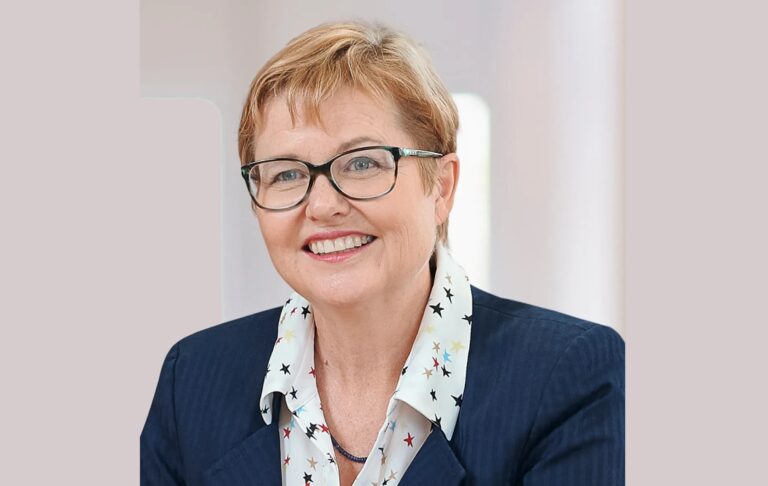(In photo: Fiona Beck, a Google adviser, has spoken of the potential benefits of Bermuda becoming a landing hub for submarine communication cables in the Atlantic – Photograph supplied)
The building of Google’s new subsea cable-landing station in St David’s promises to bring a wide range of economic benefits over time, according to the telecommunications industry expert who helped to bring it here.
Fiona Beck, an adviser to Google and the former CEO of Southern Cross Cable Ltd, a Bermudian-based submarine cable company, said the benefits ranged from jobs in construction, trenching, mooring and marine work, regulatory fees and taxes, and potential boosts for other industries, such as renewable energy and satellites.
Additionally, staff with the necessary technical expertise will be needed to operate and maintain the station — potentially bringing training opportunities and jobs for locals.
“I’m encouraging Google to think about the training opportunities now, so that at the time the cable-landing station is built, there may be opportunities for locals who are job-ready,” Ms Beck said. “Not only is it supportive to the community, it’s also cost-effective to hire locals.”
Ms Beck, a former director of the Bermuda Business Development Agency, was instrumental in crafting the island’s digital hub strategy, developing its legislative framework under the Submarine Communications Act 2020, and establishing the relationship between Bermuda and Google.
She describes her Google advisory role as like an ambassador, bringing Google and Bermuda together to make agreements that will benefit both during a long-term partnership.
A subsidiary of Google has entered into a 262-year lease with the Bermuda Land Development Corporation for a 5.9-acre site in Southside that will be home to the proposed 50,000-square-foot landing station, built to accommodate multiple cables.
Its first cable will be Google’s “Nuvem”, which will connect Portugal, Bermuda and the US East Coast. It will be the first cable to directly connect Bermuda with Europe. Ms Beck said approximately one third of Nuvem has already been laid between Bermuda and the Azores.
The station will serve Google’s strategy and also be open to new cables from other providers — most likely other global content platforms such as Meta, Microsoft or Amazon. Multiple cables will give Bermuda the capability to be an Atlantic subsea cable network “switch” with vast amounts of internet data flowing through the station on its way around the world.
Google places a high value on sustainability. This could bode well for renewable energy opportunities, given the power needs of the station, Ms Beck said.
“Power is expensive in Bermuda,” she said. “Using alternative energy sources will serve a dual purpose of reducing costs and supporting Google’s net-zero emissions initiative. Google may consider a solar installation at its site, or seek to purchase power from another solar, wind, or wave source. As a substantial power purchaser, it could help to invigorate the alternative energy market.”
There are also good reasons for space and satellite businesses to find a subsea cable hub attractive, with cables able to back up and supplement satellite data transmission. There is a longstanding connection with the space industry in the East End, where the Cooper’s Island tracking station monitors spacecraft launches for both Nasa and the European Space Agency.
“There’s the potential for crossover between the space, satellite and submarine cable industries at St David’s that is quite unique,” Ms Beck said.
Perhaps the greatest economic benefits from the subsea cables will come from the “multiplier effect”, with increased potential for hi-tech businesses using AI, big data, or future technologies.
“When Google comes here, others want to be here too,” Ms Beck said. They have brand recognition and other companies are drawn to it.”

